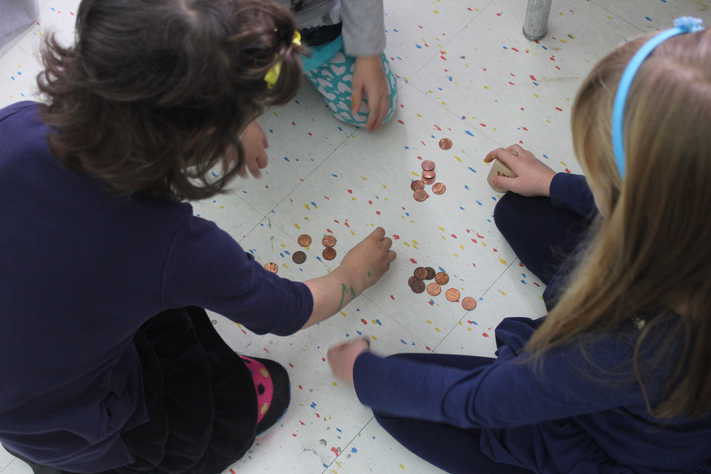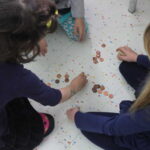by Darya Watnick, Edlavitch DC JCC, Washington, DC
Chayei Sarah
This week’s Torah portion is Chayei Sarah, literally “The Life of Sarah.” The title is a bit of a misnomer, as Sarah dies in the second verse. This portion instead focuses on Sarah’s legacy — specifically Abraham and Isaac, those most influenced by her incredible life. It’s a legacy all about family life and connection to tradition – a story that mirrors much of my work here at the DC JCC as a JOFEE Fellow.
Here’s what happens in Chayei Sarah, in a nutshell:
- Sarah dies at age 127 and is buried in the Cave of Machpelah, in Hebron, which Abraham buys from Ephron the Hittite.
- Abraham then sends his servant Eliezer to find a wife for Isaac.
- In order to find the right woman, Eliezer devises the “camel test”:when he asks for water at the well, which woman will also offer to give his camels a drink. Rebecca passes the test and returns with Eliezer to Isaac and Abraham.
- Isaac and Rebecca get married. Then Abraham takes a new wife, Keturah, and has six more sons.
- Abraham dies at the age of 175 and is buried next to Sarah, as well as Isaac and Ishmael, in the Cave of Machpelah.
In this portion, Abraham refers to G-d both as “G-d of the heavens” and “G-d of the heaven and the G-d of the earth.” Rashi, the medieval French commentator, explains this change as Abraham showing how mankind has now come to acknowledge G-d and G-d’s familiarity on earth as compared to early on in Abraham’s life when G-d was solely “known” in the heavens.
This was obviously a heavy task for Abraham, to introduce people to a new way of interacting with the world and thinking about G-d. In my work with families with young children I aim to do the same: to introduce a new way of interacting with the world and Jewish tradition by injecting as much meaning and education into my programming as possible, especially when planning large holiday celebrations. I am trying to show families how Jewish ritual can be integrated with social justice and community service.
I have found that showing families a new way of looking at how they celebrate and engage with Judaism can add meaning to their lives. My job is nowhere on the scale of Abraham’s, but I find that many people think that Judaism is only for those “in the heavens”— i.e. those who are more religious or more knowledgeable than they are. My goal is bring Judaism down “to the earth,” for these families. I want to show them that there is something for everyone within Judaism and there is no barrier to entry.

One of my current projects is planning our yearly Chanukah Celebration for families with young children. This event is a mainstay of Family Engagement programs at the Edlavitch DCJCC. In the past the celebration has included bouncy houses, latkes, doughnuts, games and crafts.
While this is an extremely enjoyable collection of activities for young kids, I find it is lacking in connection and meaning. For this year I’m working hard to infuse opportunities for community service and learning. The children will be decorating holiday cards that will be going to the seniors who come to our Senior Lunch program. There will also be a station where the families can wrap presents that will go to homeless shelters all over the city for the holidays. Along with the requisite treats, games and bouncy houses I think this line-up will allow for more learning and engagement around Chanukah than we have offered in the past.
I hope that part of my legacy at the EDCJCC will be showing families that celebrating Jewish holidays can be fun, educational and meaningful. I want everyone to feel that Judaism is accessible to them and not stuck “in the heavens.”
Shabbat shalom.
Darya Watnick is the Director of Jewish Engagement at the Edlavitch DC Jewish Community Center, focusing on programming for adults, families and young children. Prior to working at the EDCJCC, she lived in Israel for three years, participating in the Yahel Social Change Program in Gedera and studying at the Pardes Institute of Jewish Studies in Jerusalem.
—
Editor’s Note: Welcome to D’varim HaMakom: The JOFEE Fellows Blog! Most weeks throughout the year, you’ll be hearing from the JOFEE Fellows: reflections on their experiences, successful programs they’ve planned and implemented, gleanings from the field, and connections to the weekly Torah portion and what they’ve learned from their experiences with place in their host communities for the year. Views expressed are the author’s and do not necessarily represent Hazon. Be sure to check back weekly!
